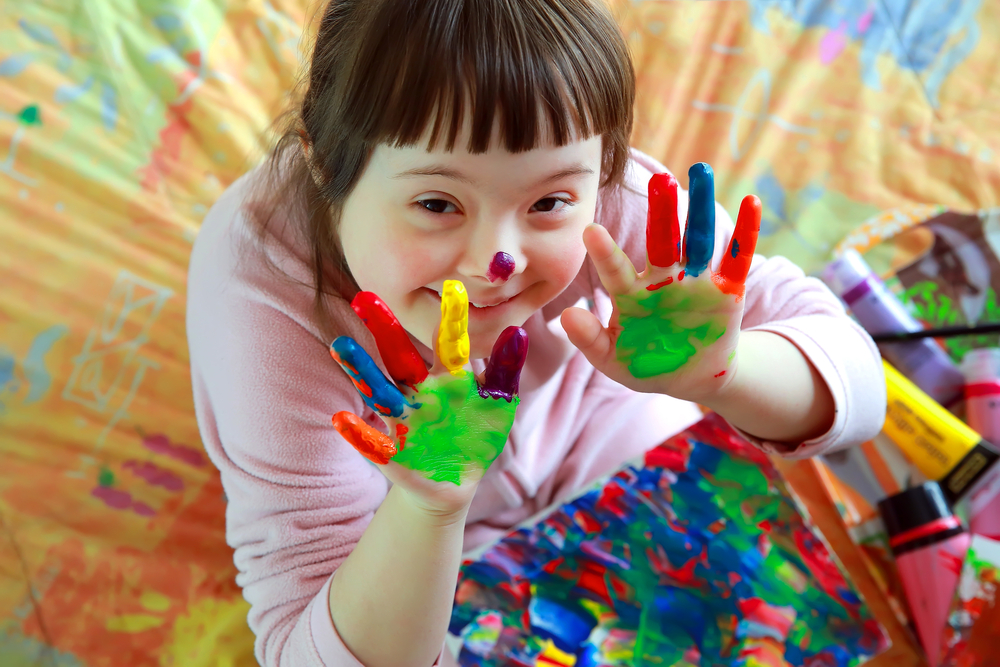Celebrating Down Syndrome Day: Promoting Social Integration of Children with Down Syndrome

Down Syndrome is a genetic condition that affects around 1 in every 700 births. An extra copy of chromosome 21 is the cause of this syndrome, which affects a child’s physical and intellectual development. Although a person with Down Syndrome faces certain challenges, they are unique individuals with their own strengths, personalities, and abilities.
In this blog, we will be discussing Down Syndrome's meaning and how it promotes the social integration of children with Down Syndrome. We will also be highlighting the importance of social integration for these children and the barriers they face.
Understanding Down Syndrome
Now, you may ask us, “Define Down Syndrome.” Define down syndrome is very easy. It is a genetic condition when there is an extra copy of chromosome 21. This extra copy alters the way a child’s brain and body develop, leading to certain physical and intellectual characteristics.
Some common physical characteristics of Down Syndrome include small stature, slanted eyes, a flattened nose, and a small mouth. Children with Down Syndrome have weaker muscle tone and may experience delays in reaching developmental milestones such as crawling, walking, and talking.
Intellectual development is also affected by Down Syndrome. Children with Down Syndrome may have intellectual disabilities that range from mild to severe. They may also have difficulty with language, memory, and learning. However, each person with Down Syndrome is different and will have their own strengths and weaknesses.
Unfortunately, there are many misconceptions about Down Syndrome that can lead to stigmatization and discrimination. For example, some people may believe that individuals with Down Syndrome are always happy, unable to learn, or unable to live independently. These myths are not true and can be harmful to the well-being of people with Down Syndrome.
Importance of Social Integration for Children with Down Syndrome
Imagine a world where everyone was accepted for who they are, regardless of their differences. A world where we celebrated diversity and embraced uniqueness. This is the world that we should strive for, especially when it comes to children with Down Syndrome.
Social integration is crucial for the emotional, physical, and intellectual well-being of children with Down Syndrome. It allows them to form positive relationships with their peers and develop a sense of belonging. It provides opportunities for them to learn from others and to develop important social skills.
When children with Down Syndrome are socially integrated, they will more likely to participate in activities, such as sports, art, and music. This not only benefits the child but also the community as a whole. They bring a unique perspective and can help to foster a more inclusive and accepting environment.
However, there are many barriers that prevent children with Down Syndrome from being fully included in their communities. Negative attitudes and beliefs can lead to discrimination, bullying, and exclusion. The lack of knowledge and understanding about Down Syndrome can lead to a lack of support and resources for children with Down Syndrome.
Physical barriers such as inaccessible buildings, transportation, and equipment can also prevent children with Down Syndrome from participating in community activities.
Hence, promoting social integration and celebrating diversity and inclusion is important. By educating ourselves and others about Down Syndrome, providing support and resources, and celebrating diversity, we can create more inclusive communities.
Social integration is not only important for children with Down Syndrome, but for everyone. It helps to foster a more inclusive and accepting environment, which benefits everyone.
Promoting Social Integration
There are many ways in which we can promote social integration for children with Down Syndrome.
One way is to educate others about Down Syndrome and to challenge the negative attitudes and beliefs that exist. This can be done through awareness campaigns, workshops, and training programs.
Another way is to provide support and resources for parents and caregivers of children with Down Syndrome. This includes access to information, support groups, and counseling services.
Schools and community organizations can also play a role in promoting social integration. This can be done through inclusive policies and practices, such as providing accessible facilities and programs and promoting diversity and inclusion.
Finally, celebrating World Down Syndrome Day is important to promote social integration. It is also an opportunity to promote social integration and inclusion for people with Down Syndrome.
Celebrating World Down Syndrome Day
World Down Syndrome Day is an important day to celebrate the lives and achievements of people with Down Syndrome. There are many events and activities that are organized on this day, such as walks, runs, concerts, and art exhibits.
Among the best ways to celebrate World Down Syndrome Day is to wear mismatched socks. This symbolizes the uniqueness of people with Down Syndrome and promotes diversity and inclusion.
Celebrating World Down Syndrome Day is not only important for promoting social integration but also for raising awareness about Down Syndrome. By celebrating this day, we can help to break down the barriers that prevent children with Down Syndrome from being fully included in their communities.
Conclusion
In conclusion, World Down Syndrome Day is an important day to celebrate the lives and achievements of people with Down Syndrome and to promote social integration. Social integration is crucial for the emotional, physical, and intellectual wellbeing of children with Down Syndrome. By addressing the barriers that prevent social integration, we can help to create more inclusive communities that celebrate diversity and promote acceptance.
We can all play a role in promoting social integration by educating ourselves and others about Down Syndrome, providing support and resources, and celebrating diversity and inclusion.


